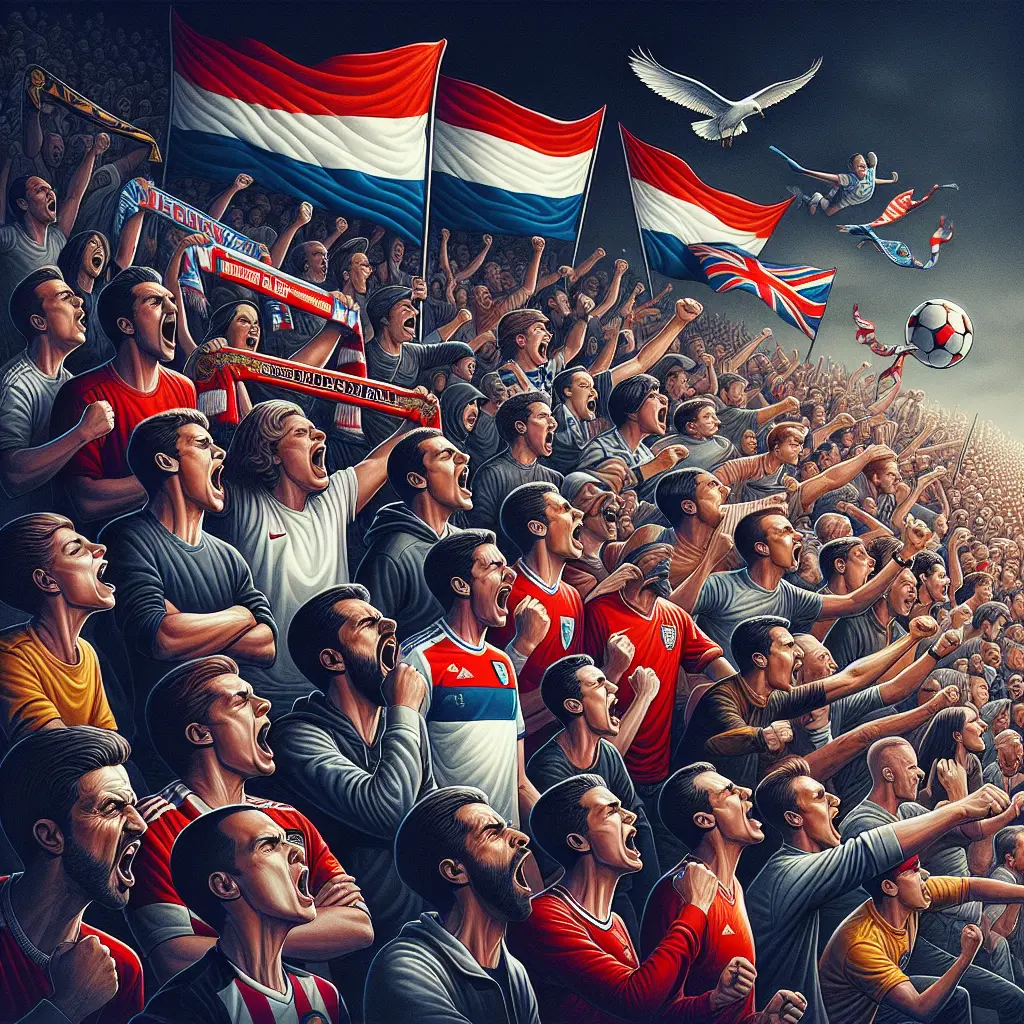
In the heart of North East England, where football is less of a sport and more of a religion, Newcastle United stands as a towering figure in the local culture and community. The club's storied rivalries, particularly with nearby Sunderland, paint a vivid picture of the cultural significance of football rivalries. Understanding these dynamics offers a fascinating glimpse into the social fabric of the region, where football frequently transcends the boundaries of mere sport.
The Deep-Rooted Passion: Football Culture in Newcastle
Football culture in Newcastle is characterized by an unwavering loyalty to Newcastle United. This fervor is not just about supporting a football team; it's a communal identity passed down through generations. The city lives and breathes football, with every match serving as a communal event that brings together families, friends, and even strangers. The impact of football on local communities here is profound, with match days significantly boosting local businesses and reinforcing communal bonds.
Historical Football Rivalries: More Than Just a Game
Among historical football rivalries, the Tyne-Wear derby, which features the Sunderland vs Newcastle rivalry, stands out as one of the most intense. This rivalry is steeped in a history that goes beyond the pitch, rooted in economic, social, and cultural differences dating back to the Industrial Revolution. The passion exhibited during these derbies is a testament to the cultural significance of football rivalries, reflecting deep-seated loyalties that underscore regional pride and identity.
Newcastle United Rivalries: A Closer Look at Tyne-Wear Derby
The Tyne-Wear derby is not just another fixture in the calendar; it’s a day that can define a season for fans. Every meeting between Newcastle United and Sunderland is charged with an electric atmosphere, with supporters from both sides passionately cheering their teams on, underscoring the fan base rivalry in Newcastle. For further insights into this historic rivalry.
Recent Updates and News on Newcastle United
Recently, Newcastle United has been in the headlines not just for their performances on the pitch but also for significant developments off it. Manager Eddie Howe has reiterated his dedication to the club amidst rumors linking him to the England job, stating, "My commitment to Newcastle is unwavering". This declaration comes at a crucial time as the club seeks stability and growth.
In transfer news, Newcastle has been active in strengthening their squad. The club recently signed England defender Stokes and is reportedly close to securing a deal with Marc Guehi. These moves signify Newcastle's ambition to build a competitive team capable of challenging at higher levels.
Off the field, however, the club has faced challenges with reports of 'violent acts of thuggery' as crowds gathered at a hotel following a match. Such incidents highlight the intense emotions football can evoke, underscoring the need for continued efforts to safeguard community and fan experiences on match days.
Impact of Football on Local Communities
The influence of Newcastle United extends far into community life in North East England. The club's success and activities have significant economic implications locally, from creating jobs to stimulating local businesses on match days. Moreover, community initiatives supported by the club play a crucial role in promoting sports and healthy lifestyles among the youth, further demonstrating football’s role as a force for good in local communities.
Reflections on Fan Base Rivalry and Regional Identity
The fan base rivalry Newcastle experiences, particularly with Sunderland, does more than fuel competitive spirits; it fosters a sense of identity and belonging among supporters. This rivalry is emblematic of how historical football rivalries contribute to regional narratives and communal pride, making each match an enactment of historical and cultural storytelling.
Looking Forward: The Path Ahead for Newcastle United
As Newcastle United continues to evolve both on and off the pitch, the integration of new talents like Stokes and potential addition like Guehi promises an exciting future. With Howe's leadership and commitment, along with strategic investments in talent and infrastructure, Newcastle is poised to reinforce its status not only in English football but also in its contribution to local culture and community life.
In conclusion, Newcastle United’s rivalries, especially with Sunderland, are much more than mere sporting contests. They are vibrant expressions of cultural heritage, regional pride, and community identity in North East England. These rivalries encapsulate the profound impact football can have on local communities—economically, socially, and culturally.
As we reflect on these dynamics, it becomes clear that football in Newcastle is not just about winning or losing games; it's about nurturing a community's heart and soul through shared passions and enduring traditions.
With unwavering spirit, Harry Foster